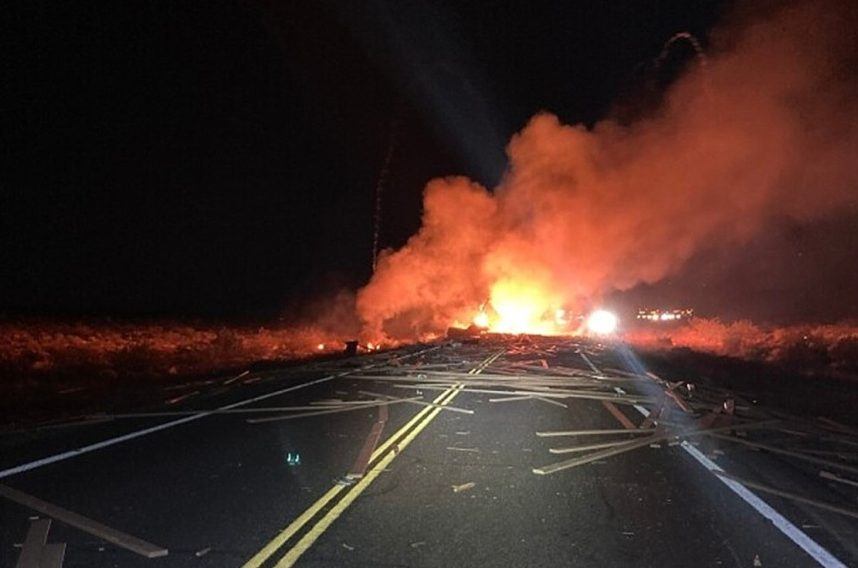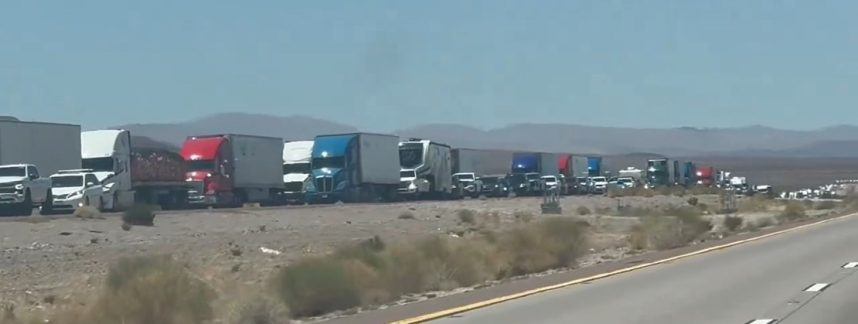A portion of US 95, northwest of Las Vegas in Nye County, remains shut down Tuesday evening, a full 18 hours after two semi-trucks collided. One carried lumber, the other lithium-ion batteries that exploded into uncontainable flames.

Though neither driver was seriously injured, lithium fires are among the most treacherous roadway hazards. That’s because they’re very difficult to extinguish, they release deadly fumes, and they pose a significant risk of self-reigniting.
Almost all set off a chain heat reaction that ends up burning every battery in the payload.
Though the fire is now extinguished, the highway must remain closed until whenever a hazmat crew finishes thoroughly cleaning the fire’s toxic residue from the roadway.
With no other options, police continue diverting southbound traffic to SR-160 and into Pahrump, Nev., adding up to two hours to every trip into Las Vegas from that direction.
Playing With Fire
This is the second lithium-ion battery fire to close a Las Vegas freeway in less than two months. And, believe it or not, it’s a much better situation.
Tens of thousands of motorists attempting to enter Las Vegas via Interstate 15 over the weekend of July 26 never made it. Instead, they found themselves stuck on the main artery from Southern California for full hours after a truck carrying 31K lbs. of lithium-ion batteries overturned and burned uncontrollably.

In a statement to the media, Rep. Dina Titus (D-NV) stated that both freeway accidents underscore the need for federal regulation of all lithium-ion battery transportation.
Last week, the congresswoman introduced the Thermal Runaway Reduction Act, which would mandate a maximum 30% charge for all lithium-ion batteries transported commercially by ground. This would match their requirements for air transportation.
Without better regulation of the transport of these batteries, it is only a matter of time before these accidents and resulting fires take human lives,” Titus said. “Furthermore, the resulting road closures and the amount of water needed to extinguish these fires have significant impacts on resources in our region.
“Congress needs to act quickly to enact life-saving regulations.”
